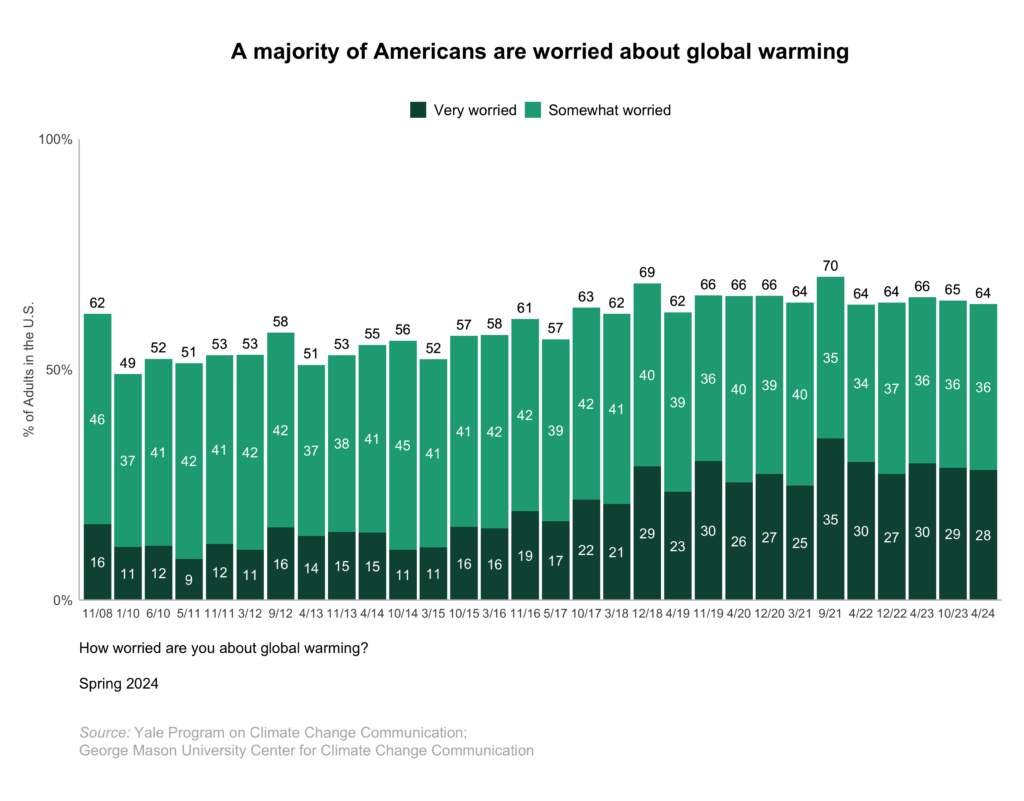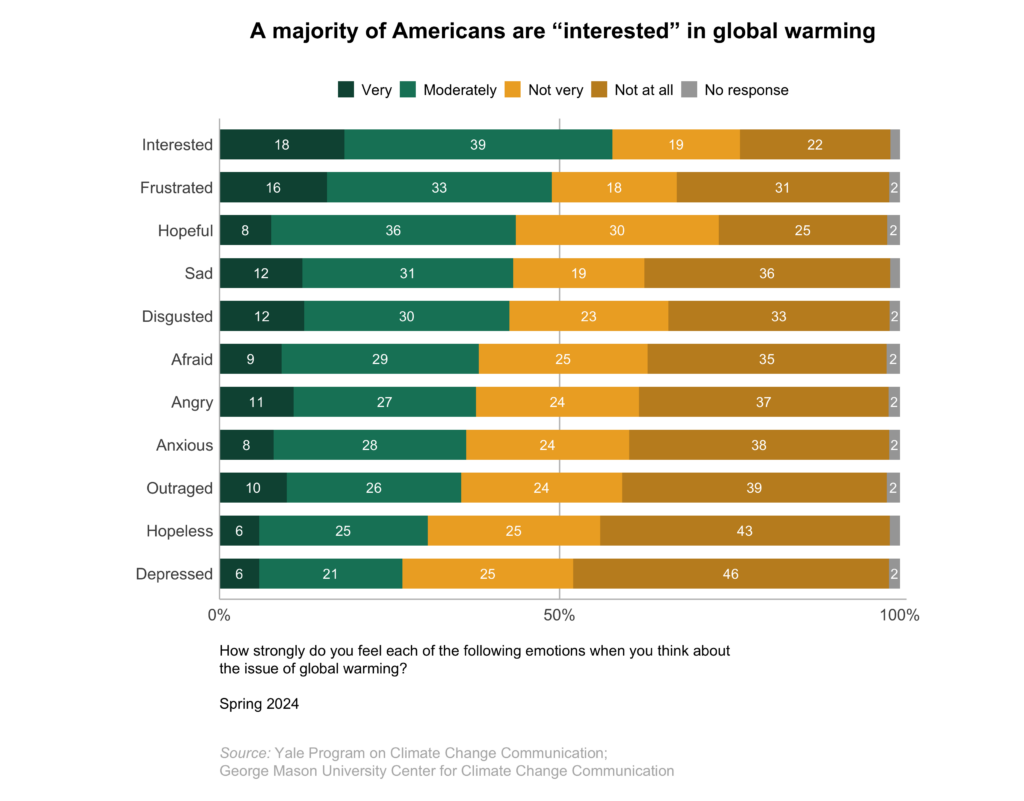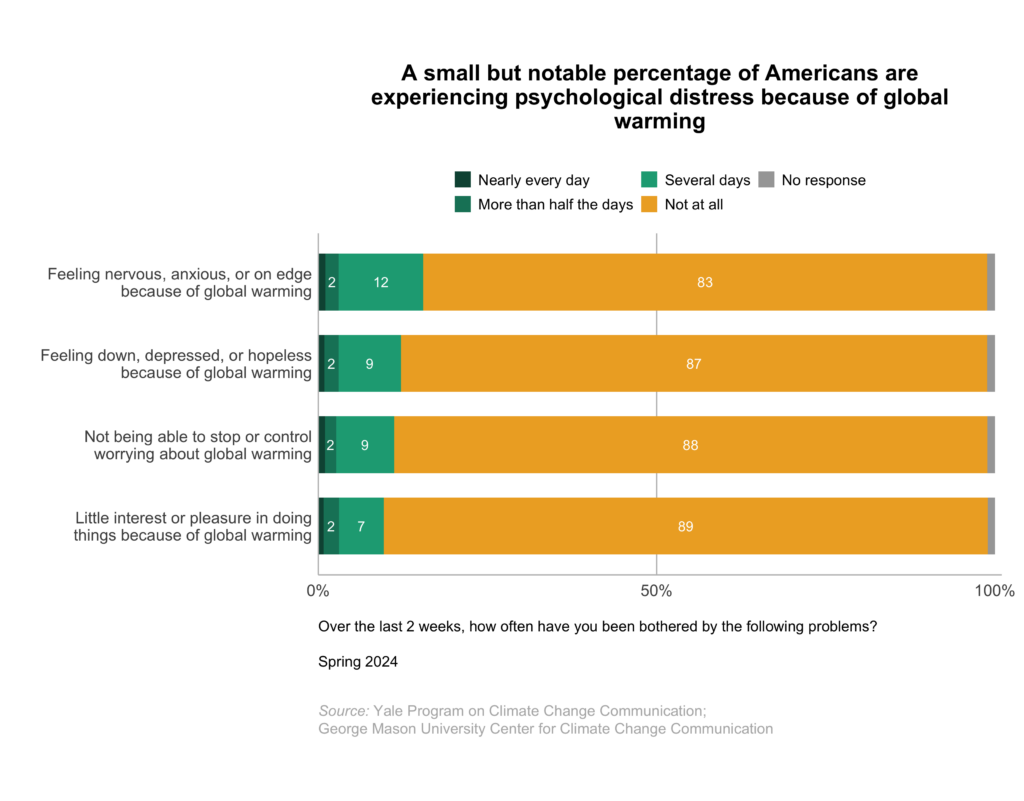Report · Jul 16, 2024
Climate Change in the American Mind: Beliefs & Attitudes, Spring 2024
By Anthony Leiserowitz, Edward Maibach, Seth Rosenthal, John Kotcher, Emily Goddard, Jennifer Carman, Matthew Ballew, Marija Verner, Teresa Myers, Jennifer Marlon, Sanguk Lee, Matthew Goldberg, Nicholas Badullovich and Kathryn Thier
Filed under: Beliefs & Attitudes, Climate Impacts and Behaviors & Actions
3. Global Warming, Emotional Responses, and Mental Health
3.1. A majority of Americans are worried about global warming.
A majority of Americans (64%) say they are at least “somewhat worried” about global warming. This includes 28% of Americans who say they are “very worried” about global warming.
3.2. A majority of Americans are “interested” in global warming.
When asked how strongly they feel various emotions when thinking about global warming, more than half of Americans (58%) say they feel “very” or “moderately” interested. Additionally, four in ten or more say they feel frustrated (49%), hopeful (44%), sad (43%), or disgusted (42%). Fewer say they feel afraid (38%), angry (38%), anxious (36%), outraged (36%), hopeless (31%), or depressed (27%).
3.3. A small but notable percentage of Americans are experiencing psychological distress because of global warming.
To assess anxiety and depression symptoms arising from people’s concerns about global warming, we adapted previously validated brief screening instruments for generalized anxiety disorder (the GAD-2)Kroenke, K., Spitzer, R. L., Williams, J. B., Monahan, P. O., & Löwe, B. (2007). Anxiety disorders in primary care: prevalence, impairment, comorbidity, and detection. Annals of internal medicine, 146(5), 317-325. doi:10.7326/0003-4819-146-5-200703060-00004 and depression (the PHQ-2).Kroenke, K., Spitzer, R. L., & Williams, J. B. (2003). The Patient Health Questionnaire-2: validity of a two-item depression screener. Medical care, 1284-1292. doi:jstor.org/stable/3768417
We found that about one in ten Americans report experiencing symptoms of anxiety because of global warming for at least “several days” out of the last two weeks, including “feeling nervous, anxious, or on edge because of global warming” (16%) or “not being able to stop or control worrying about global warming” (11%). Similar percentages report experiencing symptoms of depression because of global warming for at least “several days” out of the last two weeks, including “feeling down, depressed, or hopeless because of global warming” (12%) or having “little interest or pleasure in doing things because of global warming” (10%).


